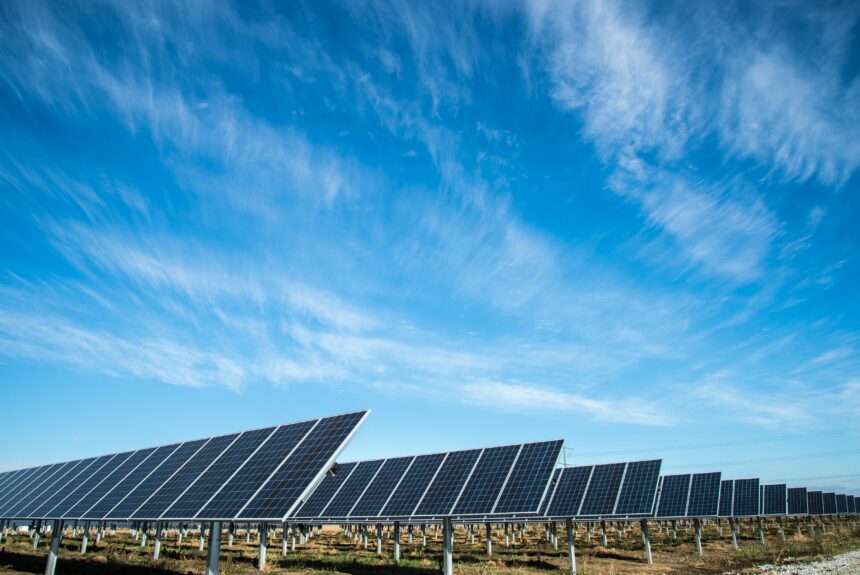Doctors are supposed to take a Hippocratic oath: “First, do no harm.”
Lawmakers take a different oath: To “support and defend the Constitution of the United States.” So sacred is this oath that it ends with “So help me God.”
What if, at least informally, lawmakers promised to do even more than that by vowing to avoid policies that do more harm than good, especially on the very issues they are hoping to improve?
Take environmental regulations, for example. Every lawmaker would consider it important to protect the environment. Nobody wants to live in a polluted landscape. Lawmakers also have families and want to preserve a clean, safe environment for future generations. But sometimes policies that aim to protect the environment stand in the way of a cleaner environment.
>>>READ: Free Trade Agreements are Key to Environmental Progress
Three areas in need of fixing if we want a cleaner, more economically sustainable environment are reducing our reliance on Rare Earth Elements (REEs) from China, updating the National Environmental Policy Act (NEPA) to accelerate the approval of American energy and infrastructure projects, and accelerating the EPA’s chemical approval process.
There has been much discussion lately in Congress about America’s overreliance on China for REEs, and the need to reform NEPA, but little has been said on the equally important issue of the EPA’s chemical approval process.
The EPA’s chemical approval process impacts everything from household goods to biofuels, wind turbines and solar panels.
In 2016 a bipartisan coalition of lawmakers amended the Toxic Substances Control Act (TSCA) to encourage the Environmental Protection Agency (EPA) to lay out a robust and effective regulatory framework for chemical safety. But EPA isn’t moving forward with vigor.
“You may not be surprised that we’ve heard from many chemical companies that the new chemical review process is essentially stalled,” Chairman Tom Carper (D-DE) of the Senate Environment and Public Works Committee told EPA chemicals chief Michal Freedhoff during a hearing last year. Freedhoff agrees. “It is incumbent on the agency to do better,” she told Sen. Jim Inhofe (R) of Oklahoma.
The same is true of existing chemicals currently under EPA evaluation. The EPA’s failure to follow through with the approved, scientifically rigorous processes could undermine the development of chemicals needed for solar cells, such as the silicone substance known as D4. Assessing and confirming the safety of chemicals like D4 would be a key step forward for a cleaner, greener economy.
Lawmakers should insist that EPA move more quickly to evaluate and approve chemicals. This would provide greater certainty in the chemical marketplace while also providing consumer confidence about the safety of chemicals entering or already in the market.
Then there are REEs. These 17 natural elements are needed to manufacture many products, including cell phones, batteries, airplanes, solar panels, satellites, and military technology. A clean and modern economy relies on rare earths. Yet the American clean energy economy is far too dependent on one country, China, for the rare earths we need.
>>>READ: All of the Above on Energy Requires the Critical Minerals Below
The U.S. imports a breathtaking 80% of the rare earths it uses from China. That puts a strain on supply chains, gives the Chinese leverage over American manufacturers, and directly harms the environment, as many of China’s mines are powered by coal and are subject to very poor environmental regulations and labor standards.
Lawmakers need to shorten the rare earths permitting process, which now takes between ten and thirty years for some elements, far more than the two years it takes in other democratic countries including Canada and Australia. Simplifying and modernizing the process would reduce operating costs and incentivize greater private sector investment.
We also must diversify our supply chain. That means free trade in rare earths with allies such as Japan and Australia. These simple steps would allow the U.S. to develop our rare earths industry and build a cleaner energy future with less reliance on China.
Lastly, there’s NEPA.
NEPA was enacted with the best of intentions: to protect the environment. But in its modern implementation, it is too bureaucratic and environmental regulations are often used to prevent instead of encourage the development of clean energy. For example, a government study finds that NEPA’s review process takes an average of 4.5 years to complete. That is adding unnecessary costs, as energy projects with a wait time greater than two years had an estimated cost of $67.1 billion.
Meanwhile, a 2017 analysis from the American Action Forum found that at that time, 148 energy and transit projects were under NEPA review, adding hundreds of billions to their cost. It doesn’t have to be like this.
When a section of I-95 in Philadelphia collapsed on June 11, President Biden promised to “move heaven and earth” to fix the highway. Indeed, within two weeks, traffic was crossing the bridge once again. Transportation Secretary Pete Buttigieg called this “a real tribute to the ingenuity of people on the ground and the engineers and the workers.” But it isn’t a miracle; it is what Americans can accomplish when bureaucrats stand aside and allow innovative solutions, such as the use of truckloads of recycled glass containers that became backfill in this project, to work.
While the latest debt deal offered some much-needed NEPA regulatory relief, more reform is necessary. Policymakers must address the ability for activists to hold up projects, many of which are clean energy or for environmental remediation, for years in the courts.
Lawmakers control the purse strings, and that gives them the power to drive positive change. By slashing through the red tape of environmental regulations and encouraging environmental innovation, they can improve American policy and help deliver a cleaner environment.
The views and opinions expressed are those of the author’s and do not necessarily reflect the official policy or position of C3.
